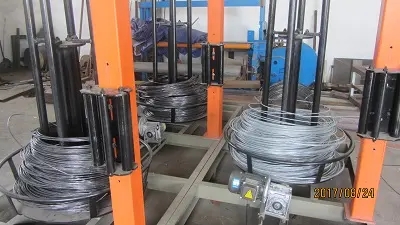
The Importance of Welded ERW Tube Mills in Modern Manufacturing
Welded Electric Resistance Welding (ERW) tube mills have become integral to the manufacturing industry, providing efficient solutions for producing high-quality steel tubes. Their significance cannot be overstated, as they cater to various applications across multiple sectors, including construction, automotive, and energy.
The Importance of Welded ERW Tube Mills in Modern Manufacturing
One of the key benefits of ERW tubes is their structural integrity and uniformity. The precision of the welding process results in tubes that have consistent wall thickness and mechanical properties. This uniformity is crucial in applications that require high strength and reliability, such as in the construction of buildings, bridges, and pipelines. With stringent quality standards in place, manufacturers can confidently supply ERW tubes that meet the specific requirements of various end-users.

Moreover, welded ERW tube mills are adaptable and versatile. They can produce tubes in a wide range of sizes and specifications to suit different industrial needs. This flexibility is essential in today's fast-paced market, where customization often plays a pivotal role in meeting customer demands. Manufacturers can easily adjust their production lines to accommodate different tube dimensions, reducing lead times and increasing competitiveness.
Furthermore, the technological advancements in ERW tube mills have led to improved automation and control systems. Modern mills are equipped with sophisticated monitoring and quality control processes, allowing for real-time tracking of production parameters. This capability not only enhances productivity but also ensures that any deviations from quality standards are swiftly addressed, thereby reducing the risk of defective products reaching the market.
Another important aspect is the sustainability associated with ERW tube production. By utilizing steel strips, a readily available raw material, and combining efficient production techniques, manufacturers can reduce their environmental impact. Furthermore, the welded tubes produced are often recyclable, contributing to a more sustainable manufacturing cycle.
In conclusion, the significance of welded ERW tube mills in the manufacturing landscape is undeniable. Their ability to produce high-quality, customized tubes efficiently positions them as a crucial asset for industries ranging from construction to energy. As technology continues to evolve, ERW tube mills will undoubtedly play an even more prominent role in meeting the increasingly sophisticated demands of the global market while adhering to sustainability practices. Manufacturers looking to remain competitive must leverage these advanced tube mills to enhance their production capabilities and ensure top-notch quality in their offerings.